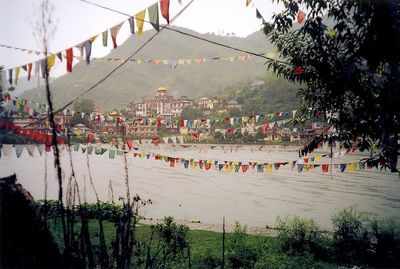- News
- Hundreds of fish dying in Himachal wetlands
This story is from May 15, 2014
Hundreds of fish dying in Himachal wetlands
Located about 24km from Mandi, the Rewalsar wetlands, which were included in the list of wetlands of national importance by the ministry of environment and forests in 2005, have religious and ecological importance.

Located about 24km from Mandi, the Rewalsar wetlands, which were included in the list of wetlands of national importance by the ministry of environment and forests in 2005, have religious and ecological importance.
MANDI: Hundreds of fish have died in Rewalsar wetlands near here in the past three days due to water toxicity, posing a serious threat to other aquatic fauna too, say wildlife experts.
Located about 24km from Mandi, the Rewalsar wetlands, which were included in the list of wetlands of national importance by the ministry of environment and forests in 2005, have religious and ecological importance.
"The main cause of the fish mortality is water contamination. Last year also a large number of fish died," director of the fisheries department Gurcharan Singh told IANS on Thursday.
He said over-feeding of the fish by the people due to religious sentiments was also responsible for the deaths.
Locals say hundreds of dead fish have been spotted floating on the waters.
Studies conducted by the Himachal State Council for Science, Technology and Environment reveal the Rewalsar wetlands are under strain due to pollution, siltation, encroachment and overgrowth of weeds.
Over the years, the depth of the wetlands has reduced drastically. Weeds also cover a major portion of the water body.
Experts say pollution depletes dissolved oxygen in water, suffocating the aquatic organisms.
They say the government should impose a ban on feeding the aquatic creatures as most of the starchy items are not eaten by the fish, which often results in pollution and growth of harmful micro-organism in the water body.
"Rapid urbanisation and development activities near the wetlands have also put tremendous pressure on the water body," said a biologist.
He said most of the septic tanks, constructed around the water body, don't adhere to specific standards resulting in the seepage of pollutants into the wetlands.
Officials of the fisheries department said the water body was "overcrowded" with aquatic creatures. They said selective harvesting of the fish was the only solution.
The harvesting is not carried out due to religious sentiments, said an official.
Located about 24km from Mandi, the Rewalsar wetlands, which were included in the list of wetlands of national importance by the ministry of environment and forests in 2005, have religious and ecological importance.
"The main cause of the fish mortality is water contamination. Last year also a large number of fish died," director of the fisheries department Gurcharan Singh told IANS on Thursday.
He said over-feeding of the fish by the people due to religious sentiments was also responsible for the deaths.
A monastery, a gurdwara and a temple are located on the banks of the wetlands. Devotees, especially Buddhists, feed the aquatic creatures.
Locals say hundreds of dead fish have been spotted floating on the waters.
Studies conducted by the Himachal State Council for Science, Technology and Environment reveal the Rewalsar wetlands are under strain due to pollution, siltation, encroachment and overgrowth of weeds.
Over the years, the depth of the wetlands has reduced drastically. Weeds also cover a major portion of the water body.
Experts say pollution depletes dissolved oxygen in water, suffocating the aquatic organisms.
They say the government should impose a ban on feeding the aquatic creatures as most of the starchy items are not eaten by the fish, which often results in pollution and growth of harmful micro-organism in the water body.
"Rapid urbanisation and development activities near the wetlands have also put tremendous pressure on the water body," said a biologist.
He said most of the septic tanks, constructed around the water body, don't adhere to specific standards resulting in the seepage of pollutants into the wetlands.
Officials of the fisheries department said the water body was "overcrowded" with aquatic creatures. They said selective harvesting of the fish was the only solution.
The harvesting is not carried out due to religious sentiments, said an official.
End of Article
FOLLOW US ON SOCIAL MEDIA
